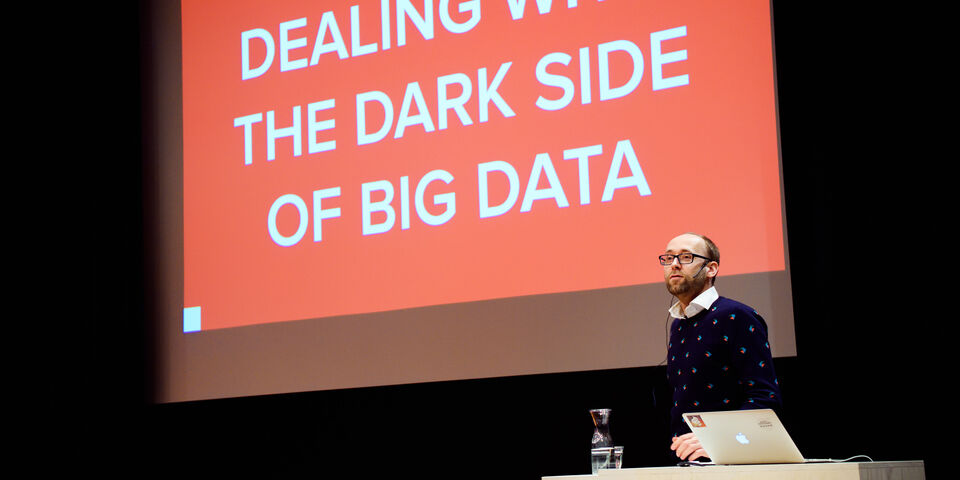"Big data threatens creativity "
If we do not intervene, big data and the reputation economy will become a new source of inequality in the world and pose a major threat to creativity. This was the message that ‘privacy designer’ and technology critic Tijmen Schep delivered Wednesday afternoon in the Blauwe Zaal in his SG lecture entitled The Paradox of Digital Creativity.
There is no democracy without privacy, nor any - or minimal - creativity, declared Tijmen Schep in rapid English. The speaker is the co-founder of SETUP, a non-profit organization that uses humor to create awareness among the general public of issues related to digital technology, such as privacy.
As we increasingly realize that almost everything we do online is saved somewhere, the inclination to experiment will decline, thinks Schep. It starts with small things - would it be sensible to click on this link, or to search for this term? But knowing you are being 'tracked' can have major consequences. People will less readily take risks because their mistakes will be known to Google - and any future employer - until the end of days.
We will soon be living in a digital ‘reputation economy’, said the speaker, in which everything known about you by parties such as Google and Facebook, supplemented with assessments from your online community, increasingly determine your status and opportunities. The consequences of the reputation economy are very tangible, he explained.
“Uber taxi drivers in the United States prefer not to have European customers because they award four stars if they have no complaints, not five stars. While apparently it is already nigh on impossible to get any customers with a score under 4.6.” He also mentioned the Danish Deemly, where you can bring together all the reputation scores that exist online about yourself in order to present yourself as a reliable participant in the participation economy.
A sinister example
Anyone who still doesn't have an uneasy feeling about this reputation economy should realize that this same system can easily be utilized by governments. As a sinister example, Schep mentioned the Chinese plans for a Social Credit System, in which every citizen would be awarded a score based on, among other things, his or her online conduct. “Whether or not you can travel or get a loan would depend on that score. Because you rating is determined in part by the scores of your friends, a system like this influences your entire life.”
The new General Data Protection Regulation, a European privacy law that comes into effect next year, was something that inspired the speaker with more enthusiasm. “As of that time, companies must be able to demonstrate that they have thought about their customers' privacy.” European start-ups, he believes, should respond with ‘privacy-conscious’ products in order to cut Silicon Valley out of the picture. “In the coming period this will be a huge market.”


Discussion